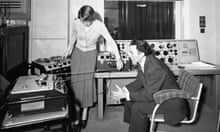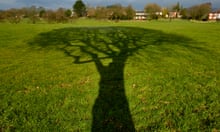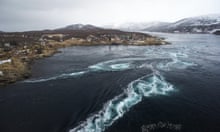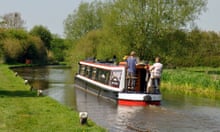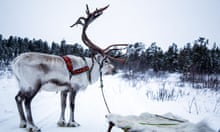The chanting of Benedictine monks and the soft trudges of a walker travelling 200 miles through a wintry German countryside will be among highlights of a season of “slow radio” on BBC Radio 3.
The channel’s controller, Alan Davey, said it had led the way in slow and immersive radio but now wanted take the phenomenon to the next level.
Slow radio is the sibling of the slow television phenomenon spearheaded in the UK by BBC Four, which has broadcast birdsong in Devon, a two-hour bus ride through Swaledale in North Yorkshire, the making of a glass jug and a narrowboat journey along the Kennet and Avon canal.
Announcing Radio 3’s new commissions on Wednesday, Davey said he wanted the channel to be not only a radio station but also “an antidote to today’s frenzied world”. He added: “We are the natural home for slow radio because we are the place where things have always taken the time they take.”
Forthcoming programmes include a six-hour broadcast, from 1am to 7am, featuring the voices of people living with dementia interspersed with music.
The sound of boot trudges will be those of Horatio Clare, who will retrace the journey taken in 1705 by a 20-year-old Johann Sebastian Bach. The composer walked, in winter, from Arnstadt to Lübeck to hear the music of the organist Dietrich Buxtehude.
Clare will make the same journey, to be broadcast over five programmes, with listeners able to hear the sounds of the natural landscape as well as his boots, breathing, reflections and the music of Bach.

The walk will be Clare’s second for Radio 3, following his far shorter walk along part of Offa’s Dyke to this year’s Hay literary festival.
He said: “I am extremely excited to be part of this wonderfully original project.” Clare said he hoped to take listeners on a “winter odyssey ... an adventure worthy of that amazing young man”.
The monk programmes are a tie-in with the BBC Four series The Monastery, following the daily lives of members of a Benedictine community. For the radio show, the monks of Downside monastery in Somerset will be recorded as they go about their day, chanting the Psalms and explaining why, for them, repeating the same activities is good for the soul.
Listeners will also be able to download the 15-minute programmes as podcasts.
The overnight dementia programme is part of a weekend of events presented in collaboration with the Wellcome Collection. They will also include the pianist Igor Levit attempting the near-impossible task of playing Beethoven’s fast, furious and complicated Diabelli Variations from memory.
Radio 3’s head of music programmes, Edward Blakeman, said slow radio helped people think. “A lot of us, we lead busy lives, we have to think quickly, constantly thinking about new and different things ... this is a chance to be reflective.”
The birthplace of slow broadcasting is arguably Norway, where a seven-hour train journey from Bergen to Oslo became an unlikely hit in 2009. The Norwegian Broadcasting Corporation has also shown a 12-hour knitting marathon and, earlier this year, the opportunity to watch 168 hours of reindeer migrating 200km (124 miles).
The slow radio programmes were part of a raft of commissions, small schedule changes and presenter reshuffles announced by Radio 3 on Wednesday.
Suzy Klein is to join Rob Cowan as a presenter of Essential Classics, while Sarah Walker is to be the new and sole presenter of Sunday Morning.
The drive-time programme In Tune moves 30 minutes later in the day to 5pm and will have, from 7pm-7.30pm, a new mix tape feature with 30 minutes of music – “sometimes contrasting, sometimes surprising” – and no talking from presenters.




